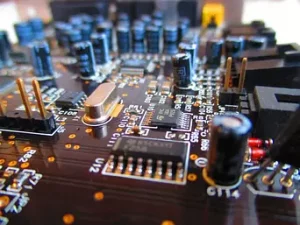Lead (Element)
What is Lead (Element)?
Lead is a metal found in products that we use every day. Countless electronics contain this heavy metal. Yet, lead is toxic to humans.
Lead poisoning causes serious health problems. The poisonous heavy metal is even more toxic than mercury, cadmium, and arsenic, and exposure can lead to brain, kidney, and other tissue damage. Despite this, lead has many qualities that make it vital to manufacturing electronics.
Keep reading to learn more about how to recycle lead and e-waste to avoid any hazardous situations for yourself or others.
Common Electronic Products Containing Lead
Lead is a chemical component with the symbol Pb and atomic number 82. Compared to most common materials, it has a high density. Lead is malleable and flexible. It was a low melting point. Because of these qualities, lead is a common construction material.
Batteries and bullets contain lead. Radiation shields made from lead protect you from X-rays. Televisions and computer monitors also contain lead. Manufacturers use lead to help stabilize the glass in these devices.
Effects of Lead Poisoning People and Animals
In nature, lead builds up in the blood of animals. It is a slow-acting poison. It can take months or even years for lead to build up in the body.
In humans, this leads to health problems. This includes high blood pressure, kidney disease, stroke, and even cancer. Lead poisoning can also impact childhood development.
Safely Disposing of E-Waste Containing Lead
You can dispose of lead in several ways. You don’t want to throw your old electronics in the trash, where they invariably end up in garbage dumps, polluting the soil, water, and air. Proper computer recycling is an important way to lead out of the environment and out of our bodies.
When lead ends up in landfills, it can leach into the groundwater. It can also contaminate the soil. This in turn allows it into the vegetation eaten by animals and humans. That’s why it’s important to recycle e-waste instead of just throwing it away.
E-waste recycling also means the lead can be reused, which reduces the need for less new production, which in turn is also good for the environment. E-waste facilities can remove lead, glass, and more from old devices by melting the metals down so they can reused batteries and electronics.
You don’t want to try and recycle electronics alone. Do not smash items containing lead. Breaking them apart might result in exposure to dangerous levels of lead. It is hazardous for both humans and the environment.
Trying to recycle e-waste by yourself risks exposure to toxins and heavy metals. That’s why you should leave e-waste recycling to the trained professionals at Newtech Recycling. They will remove lead and other metals in specialized facilities.
Safety is Key When Recycling Lead E-Waste
If you’re looking for a way to dispose of your e-waste responsibly, Newtech Recycling is here to help. We are certified experts with the rules and regulations for safely disposing of lead. Make an impact on the environment and keep yourself safe from heavy metals at the same time!
We can dispose of your old computers, batteries, and other electronics. Contact Newtech Recycling today to get started.


